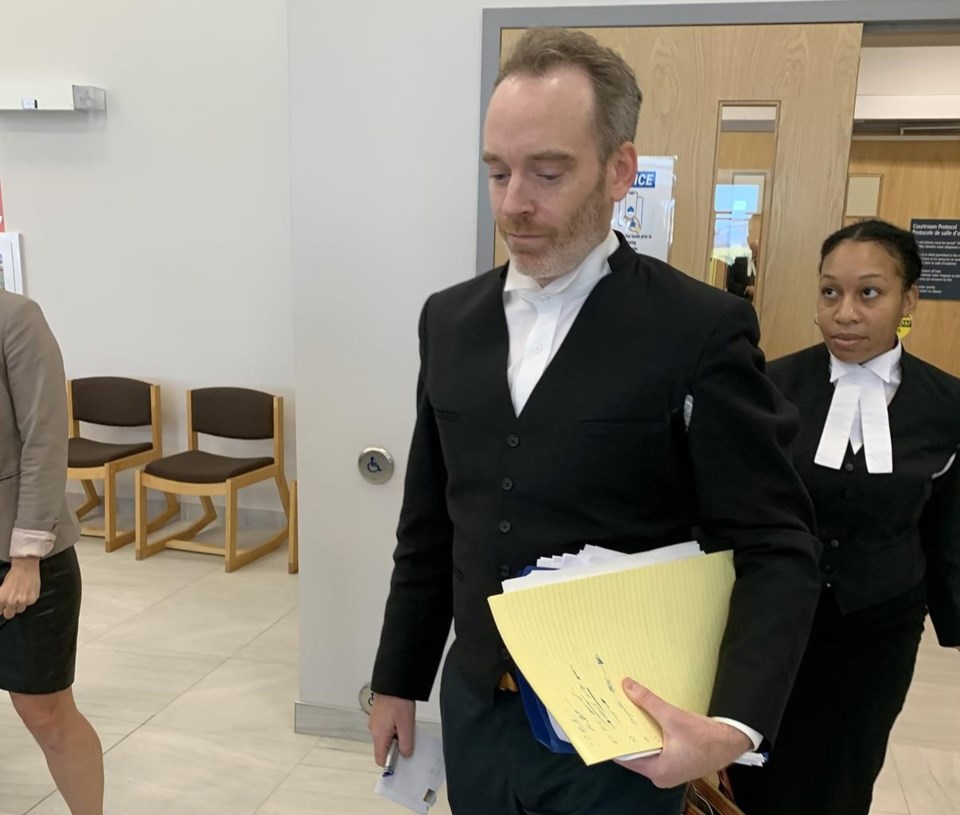HALIFAX — Differing views on the credibility of a key Crown witness were heard Tuesday in the retrial of a man accused of murdering a pizza delivery man in a Halifax suburb 13 years ago.
Randy Riley is being tried for second-degree murder in Nova Scotia Supreme Court before judge and jury for the death of Chad Smith, who was killed by a single gunshot blast on the evening of Oct. 23, 2010.
The arguments of the prosecution and the defence focused on the truthfulness of witnesses, particularly Paul Smith — no relation to the victim — who drove the accused on the day of the killing.
Defence lawyer Trevor McGuigan told the jury it would be "dangerous" to rely on Smith's 2018 evidence from Riley's first trial, considering that the witness recanted most of his statements in the current trial.
"The Crown suggested that Smith changed his story ... because of fear or a safety concern. But there's no evidence of that at all. Mr. Smith said, 'I came forward on my own to set the record straight and make things right before it was too late.' He had a crisis of conscience."
The defence lawyer emphasized to the jury that they'd heard Smith admitting that he did not tell the truth in 2018 about what Riley said to him in the car the day of the killing or in conversations the next day.
In Riley's first trial, Smith had testified that Riley, then 19, told him he'd been in an earlier fight with the victim, he knew the victim worked at a pizzeria and, "He was just going to deal with it." Smith had said in the first trial that Riley told him on Oct. 24, "It had to be done." He also testified in 2018 that he saw Riley with what appeared to be a gun tucked in his pants that night.
"You heard Mr. Smith explain that he lied about most of that," McGuigan said. "He lied about what he claimed Mr. Riley said to him in the vehicle. He lied about what he claimed he saw. He lied about what he claimed Riley said to him the next day."
Prosecutor Peter Craig said in his closing arguments that while it is true the witness now claims he did not tell the truth in 2018, the change was motivated by "fear" and in fact many key elements in his original story are true.
He disputed the defence's theory that Smith fabricated his story from elements that a visiting detective provided him during an interview three years after the killing. He argued that there were too many details in the 2018 testimony that line up with phone records and other witnesses for that to be possible.
The prosecutor provided the jury with what he referred to as "pieces of the puzzle" through cellular phone records and some witness testimony.
He pointed to six calls before the killing that could be traced to the geographic location of where Riley allegedly purchased the gun from another man in another part of the city.
The best explanation for the almost constant stream of calls by Riley suddenly ceasing for about half an hour on the night of Oct. 23 was that this was the time the shooting happened, Craig said. "You can't use your phone when you're in the process of murdering someone," the prosecutor told the jury.
McGuigan also assailed the credibility of a prosecution witness who is in a witness protection program. She testified that during a meeting with Riley the day after Smith was killed, he had threatened to kill her and her brother.
The defence lawyer suggested that the time and place the witness said the conversation occurred didn't line up with cell tower evidence produced by a Crown expert witness. Craig argued in his closing that the witness had mixed up some times in her testimony.
Still, the prosecutor said, taken as a whole, the various pieces of evidence "piles up to be a mountain."
McGuigan countered that there isn't any credible firsthand testimony to prove the case.
"If you ask yourself, 'Can we be sure to that high degree of certainty, that Mr. Riley shot and killed Chad Smith, the answer will have to be 'No,'" he told the jurors.
This report by The Canadian Press was first published Oct. 3, 2023.
Michael Tutton, The Canadian Press



